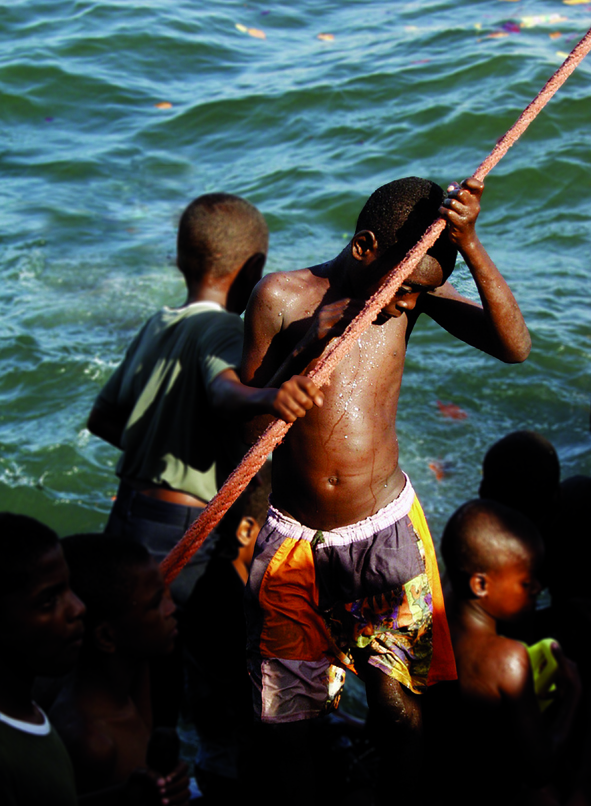The River Child cross-curriculum project consists of a set of activities that are related to learning outcomes in Geography, Science, Design and Technology, English, Drama and ICT for children aged 9-12. It also provides the opportunity for teachers to introduce Religious Education through the study of Islam as practised by Mohamed, the boy whose story is the focus for the project.
Teaching about a distant place

When teaching about experiences outside of our own culture it is very easy to present other people and places as very different from our own. Children in Britain can often hold very negative views about other people and other places – often reinforced by media representations of developing countries as violent places suffering terrible disasters. If you ask the children in your class to produce a mind map about Africa before beginning the activities, the likelihood is that their ideas will be influenced by media images of poverty, war, famine and disease. One aim of the activities in this project is to challenge such images of Africa through the study of Gashaka village.
The approach taken in this study can be described as a ‘common needs’ approach. This is based on the idea that all people have common needs and these needs may be met in different ways depending on where we live and who we are. The similarity of human experiences is emphasised first, before acknowledging differences.
Collaborative learning
The activities are designed to promote collaborative learning. It is recommended that all group work be undertaken in mixed ability groups. Students are required use their existing knowledge to find out about things that are different to their experience. The activities are designed to empower the learners and help them take responsibility for their learning.
The village of Gashaka Gashaka village is found on the edge of the Gashaka-Gumti Game Reserve in Taraba State in Nigeria. This area contains extensive montane and lowland moist forests, a considerable portion of which is conserved in a network of forest and game reserves. The area is very important because one of Nigeria’s two major rivers, the River Benue (pronounced Benway) flows through Taraba State. Some of the most important tributaries of this major river have their headwaters in the mountainous country alongside the border with the Cameroon just above the reserve. The forests of the area protect these headwaters. If the conservation of these forests collapses then the watershed and catchment of this major river system will be in serious danger of irreparable damage with consequently disastrous effects on water resources and river flow patterns. The existence of these forests is essential for the economies of many villages.